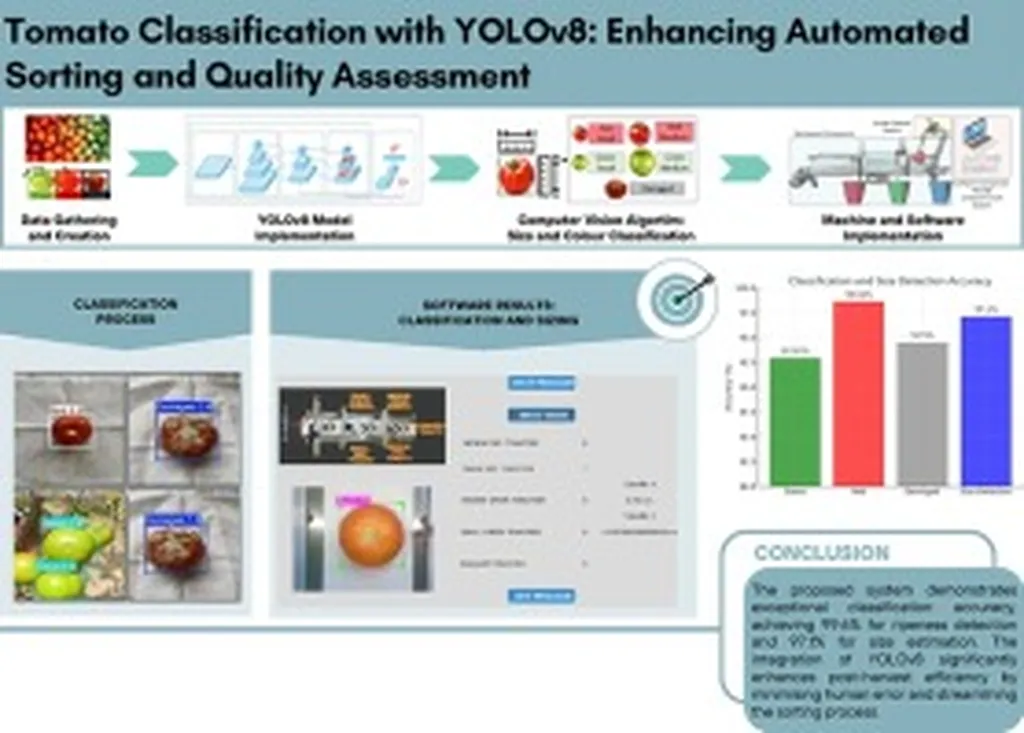In the rapidly evolving landscape of smart agriculture, a novel framework is making waves, promising to revolutionize tomato cultivation through advanced computer vision and edge computing. Researchers have introduced GAE-YOLO, a lightweight multimodal detection system designed to tackle the challenges of high computational complexity and real-time monitoring in tomato farming.
The GAE-YOLO framework, detailed in a recent study published in *Frontiers in Plant Science*, leverages Ghost-based Adaptive Efficient You Only Look Once (GAE-YOLO) algorithm to achieve a balance between computational efficiency and detection accuracy. By replacing standard convolutional layers with Ghost Convolution (GhostConv) modules, the system significantly reduces the computational load while maintaining high performance. “This approach allows us to deploy the system on edge devices like the Jetson TX2, making it practical for real-world agricultural applications,” said lead author Xiaoke Liu from the School of Basic Medical Sciences, Shandong Second Medical University.
One of the standout features of GAE-YOLO is its integration of AReLU activation functions and Effective Intersection over Union (E-IoU) loss optimization, which enhances detection accuracy. The system achieves an impressive 93.5% mean Average Precision at 50% intersection over union (mAP@50) at 10.2 frames per second (FPS) on the Jetson TX2 platform. With TensorRT acceleration and 720p resolution, this throughput can be further optimized to 27 FPS, catering to scenarios demanding higher processing speeds.
Beyond detection, the system incorporates ZED stereo vision for 3D localization and a PyQt6-based visualization platform, providing farmers with comprehensive tools for monitoring and managing their crops. The framework also includes modules for disease diagnosis and agricultural large language model consultation, offering a holistic solution for smart farming.
The commercial implications of this research are substantial. By enabling real-time, accurate monitoring of tomato crops, GAE-YOLO can help farmers optimize yield and reduce waste, ultimately improving profitability. The system’s edge computing capabilities mean it can be deployed in remote or resource-constrained environments, making it accessible to a wide range of agricultural operations.
“This technology has the potential to transform the way we approach agriculture,” Liu noted. “By providing farmers with real-time data and insights, we can help them make more informed decisions, leading to more sustainable and efficient farming practices.”
The research not only addresses current challenges in smart agriculture but also paves the way for future developments. As edge computing and computer vision technologies continue to advance, systems like GAE-YOLO could become integral to modern farming practices, driving innovation and improving outcomes for farmers worldwide.

